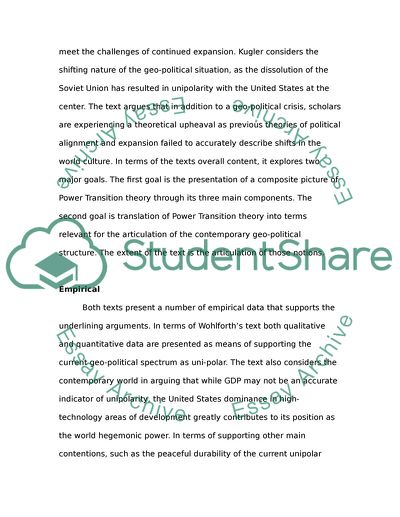Cite this document
(“Power Transitions Strategies for the 21st Century Book Report/Review”, n.d.)
Retrieved from https://studentshare.org/politics/1578997-politics
Retrieved from https://studentshare.org/politics/1578997-politics
(Power Transitions Strategies for the 21st Century Book Report/Review)
https://studentshare.org/politics/1578997-politics.
https://studentshare.org/politics/1578997-politics.
“Power Transitions Strategies for the 21st Century Book Report/Review”, n.d. https://studentshare.org/politics/1578997-politics.


